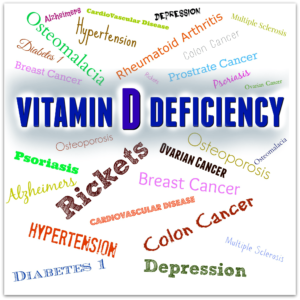The link between vitamin D and women’s mental health

In recent years, researchers have started uncovering the important role vitamin D plays in various aspects of human health. One area that has gained significant attention is the link between vitamin D and mental health. Women, in particular, seem to be greatly affected by the deficiency of this essential nutrient. This article aims to explore the connection between vitamin D and women’s mental health, shedding light on its potential benefits and implications.
The Role of Vitamin D
Vitamin D, often referred to as the “sunshine vitamin,” is primarily produced in our bodies when the skin is
exposed to sunlight. It helps regulate the absorption of calcium and phosphate, promoting healthy bone
development and preventing conditions like rickets. However, emerging research indicates that the functions
of vitamin D are not limited to musculoskeletal health.
Studies suggest that vitamin D receptors are present in numerous brain regions responsible for mood and
cognitive function. This has led scientists to explore the potential impact of vitamin D on mental health,
particularly in women who are more susceptible to mood disorders.
The Link to Women’s Mental Health
Research indicates an association between vitamin D deficiency and an increased risk of mental health disorders
in women. Conditions such as depression, anxiety, and seasonal affective disorder (SAD) have been linked to
low levels of vitamin D in the body. While the exact mechanisms behind this correlation are still being
understood, several hypotheses have been proposed.
Neurotransmitter regulation: Vitamin D is believed to play a role in the synthesis and
regulation of various neurotransmitters, including serotonin, dopamine, and norepinephrine, which impact
mood and emotional well-being. Deficiency may disrupt optimal neurotransmitter function.
Inflammation reduction: Vitamin D has anti-inflammatory properties, and chronic
inflammation has been associated with mental health disorders. Ensuring sufficient levels of vitamin D
could potentially help reduce inflammation and mitigate associated psychological symptoms.
Sunlight exposure: The lack of sunlight exposure, which is necessary for vitamin D
synthesis, during certain seasons or in geographic regions with limited sunlight, has been linked to
higher rates of mood disorders in women. This phenomenon is particularly notable in northern latitudes
where sunlight availability is limited during the winter months.
Scientific Studies
Several scientific studies have explored the connection between vitamin D and women’s mental health. One
notable study published in the Journal of Clinical Psychiatry found a significant inverse relationship
between levels of vitamin D and depressive symptoms in women. Another study published in the International
Journal of Psychiatry in Clinical Practice reported that vitamin D supplementation demonstrated improvements
in depression symptoms among women with fibromyalgia.
While these studies provide encouraging insights, it is important to note that further research is needed to
fully understand the relationship between vitamin D and mental health conditions in women. Randomized
controlled trials and larger-scale studies are required to establish conclusive evidence.
Ensuring Adequate Vitamin D Levels
To promote optimal mental health, it is crucial for women to maintain sufficient levels of vitamin D. This can
be achieved through various strategies:
Sun exposure: Spending time outdoors and allowing the skin to be exposed to sunlight,
especially during midday when the sun’s rays are strongest, can help stimulate vitamin D synthesis in the
body.
Dietary sources: Consuming foods rich in vitamin D, such as fatty fish (salmon, mackerel,
and sardines), egg yolks, fortified dairy products, and mushrooms, can contribute to vitamin D intake.
Supplementation: In cases where natural means are insufficient, vitamin D supplements
may be recommended. However, it is important to consult with a healthcare professional to determine the
appropriate dosage for individual needs.
Conclusion
Vitamin D plays a crucial role in women’s mental health, with emerging research highlighting its potential
impact on mood disorders such as depression, anxiety, and SAD. While further studies are necessary to
establish definitive evidence, there is a growing body of research suggesting the importance of maintaining
adequate vitamin D levels. Ensuring sun exposure, incorporating vitamin D-rich foods, and considering
supplementation under professional guidance are key strategies to promote women’s mental well-being.





